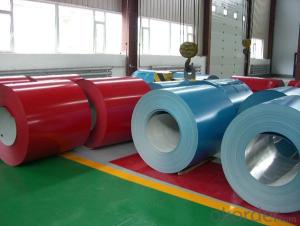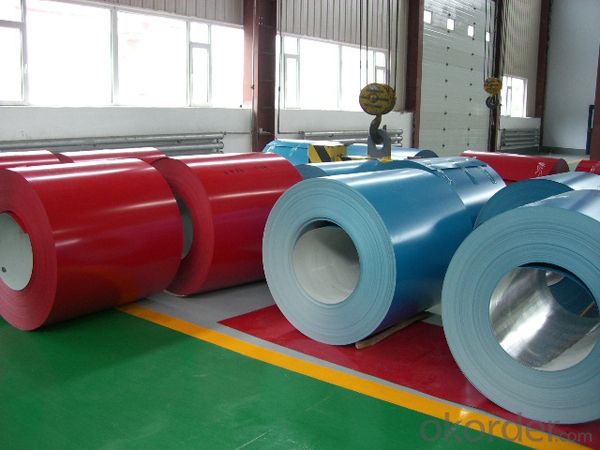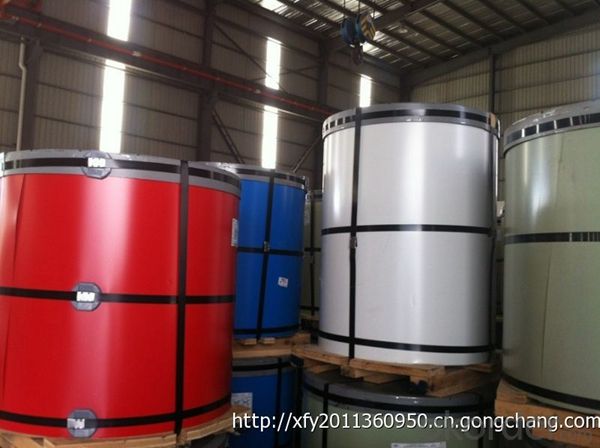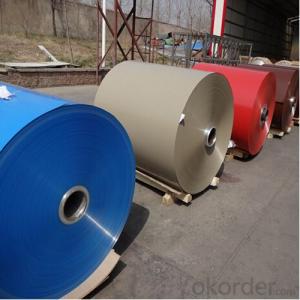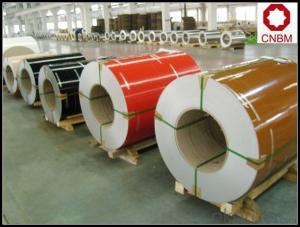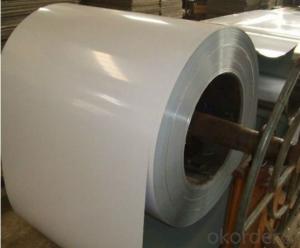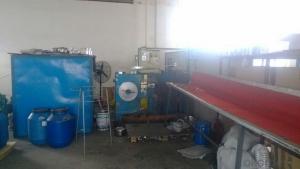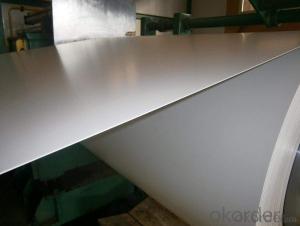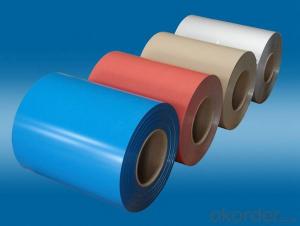Flat Rolled Aluminum Coil Michigan - PE PVDF Color Coated Aluminum Coil for Wall System
- Loading Port:
- Shanghai
- Payment Terms:
- TT OR LC
- Min Order Qty:
- 5 m.t.
- Supply Capability:
- 10000 m.t./month
OKorder Service Pledge
OKorder Financial Service
You Might Also Like
Specification
1. Specification of PE PVDF Color Coated Aluminum Coil for Wall System
characteristics | Application |
1) Super peeling strength | 1) Building exterior curtain walls |
2) Excellent surface flatness and smoothness | 2) Decoration and renovation additions for old buildings |
3) Superior weather, corrosion, pollutant resistance | 3) Decoration of interior walls, ceilings, bathrooms, kitchens and balconies |
4) Even coating, various colors | 4) Shop door decorations |
5) Fireproof, excellent heat and sound insulation | 5) Advertisement board display platforms and signboards |
6) Superior impact resistance | 6) Wallboards and ceilings for tunnels |
7) Lightweight and easy to process | 7) Industrial materials, materials for vehicles and boats |
2. Application of PE PVDF Color Coated Aluminum Coil for Wall System
(1).Interior: wall cladding, ceilings, bathrooms, kitchens and balconies, shutters, doors...
(2).Exterior: wall cladding, facades, roofing, canopies, tunnels,column covers , renovations...
(3).Advertisement: display platforms, signboards, fascia, shop fronts...
3. Feature of PE PVDF Color Coated Aluminum Coil for Wall System
*Such coil is specially designed to replace aluminum ingot, due to the high export tax of aluminum ingot, the coil has better price than ingot.
*This type of coil can fit customer's remelting furnace just like ingot, no need to make any change to the production line that was previously used for ingot. The standard coil size and weight is very suitable for the feed gate of furnace.
*This type of coil causes less material wastage than ingot when remelted.
*Our coil is made directly from ore, no need to go though the ingot making process, quality is much better than other suppliers who use ingot scrap to make coil.
Be free from Oil Stain, Dent, Inclusion, Scratches, Stain, Oxide Dicoloration, Breaks, Corrosion, Roll Marks, Dirt Streaks and other defect which will interfere with use
4. Certificate:
SGS and ROHS(if client request, paid by client), MTC(plant provided), Certificate of Origin(FORM A, FORM E, CO), Bureau Veritas and SGS (if client request, paid by client), CIQS certificate
5. Image of PE PVDF Color Coated Aluminum Coil for Wall System
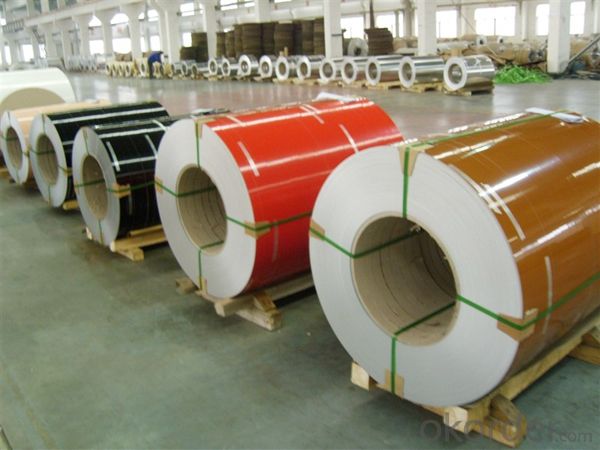
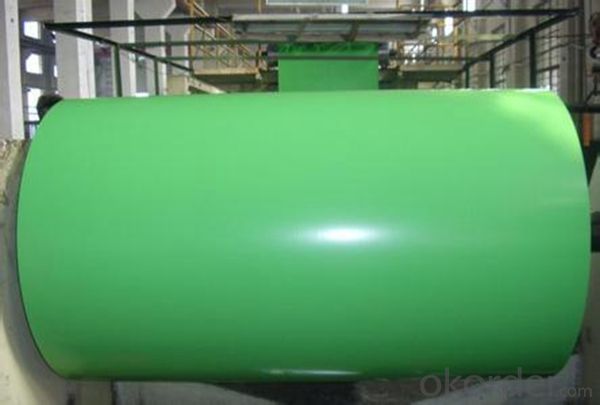
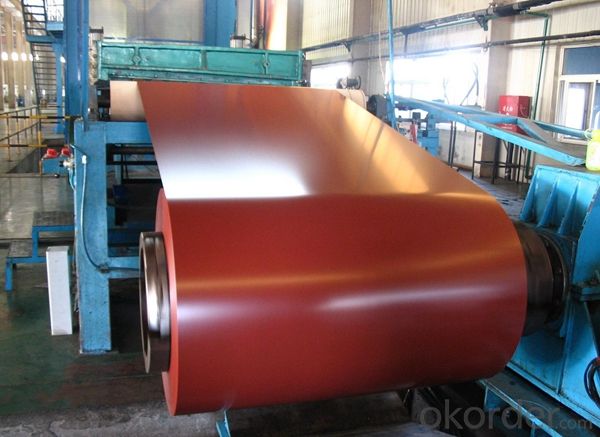
6. Package and shipping of PE PVDF Color Coated Aluminum Coil for Wall System
eye to wall
eye to the wall
with wood pallet (wooded case also available)
7. FAQ
1) What is the delivery time?
Dpends on actual order, around 20 to 35 days
2)What is the QC system:
We have QC staff of 20 persons and advanced equipment, each production is with MTC traced from Aluminum ingot lot.
3) What market do you mainly sell to?
Australia, America, Asia, Middle East, Western Europe, Africa etc
- Q: I am wondering if a deodorant made with aluminum silicate is safer than one with aluminum salt.
- aluminum silicates have been used in deodorants for years. there was a time when it was thought that the Al in the deodorants was causing alzheimers but that has been shown to be wrong. if there are other dangers to the silicates, we haven't found them or they aren't that bad
- Q: What are the different alloy grades used in aluminum coils?
- There are several different alloy grades commonly used in aluminum coils, including 3003, 5052, 6061, and 7075. These grades have varying levels of strength, corrosion resistance, and weldability, making them suitable for different applications in industries such as automotive, construction, and aerospace.
- Q: What precautions should be taken while using tools for handling aluminum coils?
- <p>When handling aluminum coil tools, it's crucial to follow safety measures to prevent accidents. Always wear appropriate personal protective equipment (PPE) such as gloves, safety glasses, and closed-toe shoes. Ensure the tools are in good condition and well-maintained. Keep the work area clean and free of debris to avoid slips or trips. Be cautious of sharp edges on the aluminum coils, as they can cause cuts. Use lifting equipment when necessary and never attempt to lift heavy coils manually. Follow all manufacturer guidelines for the safe operation of the tools. Regularly inspect the tools for any signs of wear or damage and replace them as needed.</p>
- Q: What is the typical elongation of aluminum coils?
- The elongation of aluminum coils can vary depending on various factors, including the specific alloy and temper of the aluminum, the manufacturing process, and the intended application. However, aluminum coils generally have a high capacity for elongation. On an average basis, aluminum coils can stretch or deform by approximately 5-15% without fracturing or breaking. This is possible due to the inherent ductility of aluminum, which enables it to be easily shaped and formed without compromising its structural integrity. The elongation of aluminum coils plays a significant role in multiple industries, such as construction, automotive, and aerospace, where the material is commonly utilized. This characteristic allows for efficient fabrication procedures, including bending, rolling, and stamping, to create intricate and precise shapes. It is important to highlight that the elongation of aluminum coils can be further enhanced through the incorporation of specific alloying elements and heat treatments. These processes can improve the material's properties, making it even more suitable for demanding applications that require exceptional strength, ductility, and elongation capabilities. To accurately determine the elongation properties for a specific application, it is crucial to consider the particular alloy, temper, and manufacturing processes involved. In conclusion, while the typical elongation of aluminum coils ranges from 5-15%, a comprehensive evaluation of these factors is necessary.
- Q: Can aluminum coils be used in high-altitude environments?
- Yes, aluminum coils can be used in high-altitude environments. Aluminum is a lightweight and corrosion-resistant material, making it suitable for various applications, including in high-altitude environments. Aluminum coils are commonly used in air conditioning systems, heat exchangers, and refrigeration units, which can function efficiently at high altitudes. Aluminum's high strength-to-weight ratio allows it to withstand the extreme conditions found at high altitudes, including low temperatures, high winds, and low atmospheric pressure. Additionally, aluminum is non-magnetic, which is advantageous in certain high-altitude applications, such as aerospace and satellite technologies. Furthermore, aluminum has excellent thermal conductivity, allowing it to efficiently transfer heat, making it ideal for use in cooling systems operating in high-altitude environments. Its corrosion resistance properties also make it durable and able to withstand the effects of moisture, which can be prevalent in such environments. Overall, aluminum coils are a reliable and suitable choice for use in high-altitude environments due to their lightweight, corrosion resistance, thermal conductivity, and strength.
- Q: Can aluminum coils be used for architectural facades?
- Yes, aluminum coils can be used for architectural facades. Aluminum is a popular material for architectural applications due to its lightweight nature, durability, and flexibility. It can be easily molded and shaped into various forms, making it suitable for creating unique and aesthetically pleasing facades. Additionally, aluminum is resistant to corrosion, making it a long-lasting choice for exterior applications.
- Q: so i have a dirtbike and i wanted to polish the swing arm.i have 100 grit,400,800 and 1200.i use to 100 to take off the coating the swing arm has and once its off its like a natural aluminum left.well i polished it before and it came out real good to a mirror finish.well i did the other half of the swing arm exactly the same even with new sand paper and it just didnt shine like the other half!i wet sanded it and i used car wax as my buffing compound,yes i used a soft buffing wheel.the car wax works really good!thats how i got the first half to a mirror shine but the other half just wasnt working for me.any suggestions?oh and i sanded in all one direction.
- Use 1200 to 2000 grit. Your sandpaper is way too course! The paper probably got gummed up With aluminum particals. Use water or oil to wash away particals. In other words wet sand it. Then get this polish called Mothers Aluminum Polish. And two micro fiber cloths. Use the mothers and wipe off with first towel. Then use second towel. Trust me! I spend alot of time in my machine shop making custom aluminum parts. If you can trickle water over the surface of what your polishing it helps. The 1200 to 2000 grit can be purchased at Walmart in the auto section.
- Q: wood aluminium windows?
- Does this mean the vinyl or aluminum is laminated over the wood? I do not know of the aluminum over owod. Aluminum transfers heat and cold very well, so vinyl is much better. Vinyl does not oxidize and is a standard on windows today. There are viyl clad wood windows, for people who like real wood inside, but none of the maintenance headaces of real wood outside.
- Q: need to know the procedure for removal of aluminum windows with brick trim
- 1st off let`s determine what kind of windows you have. Examine the inside of the jambs. Are there any screws going through the jamb into the rough opening? If so you have a masonary style window. Chances are they can be removed relatively easily. Most the time removal of fastners,scoring of drywall and caulk and they practically fall out (sometimes). You may find removal of the sash and remaining glass, then collasping the frame will work best. This technique is a must if you have the other breed of window, the flanged. You can ID this window by measuring the inside and out . If they`re the same, it`s flanged. I`ve found 99 time out of 100 these windows can be collasped. Once again remove sash and all glass. Here`s where the sawsall comes in. Remove the center bar. Drive a flat bar under the sill from the exterior. Pry it up as high as you can. Cut the sill. Now drive the flat bar between the side jambs and the brick and start prying. Most of the time these windows are only nailed on the corners, sometimes the fin will rip from the jamb. But in the end the removal will be accomplished. If you find you need to pry from the interior, don`t pry against drywall. Put a piece of wood under your bar to protect the drywall. NEVER! pry on tile or marble. I`ve removed literally thousands of these little buggers. Can`t only remember maybe a handful of times I had to cut a flange. GOOD LUCK!!!!!
Send your message to us
Flat Rolled Aluminum Coil Michigan - PE PVDF Color Coated Aluminum Coil for Wall System
- Loading Port:
- Shanghai
- Payment Terms:
- TT OR LC
- Min Order Qty:
- 5 m.t.
- Supply Capability:
- 10000 m.t./month
OKorder Service Pledge
OKorder Financial Service
Similar products
Hot products
Hot Searches
Related keywords
